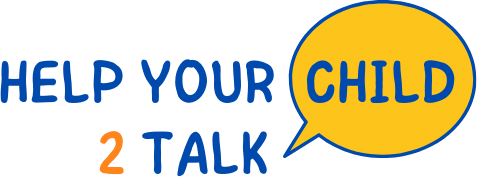Pediatric Speech-Language Pathologists (SLPs) play a crucial role in the development and well-being of children in need of their services. These professionals are trained to screen, evaluate, diagnose, and treat speech, language, communication, and feeding and swallowing disorders in children from infancy onward. In this article, we will answer the question, “What is a Speech-Language Pathologist?”
Speech-Language Pathologist’s Education and Qualifications
- Educational Background: Pediatric SLPs typically hold at least a Master’s degree.
- Certification: They are often certified by the American Speech-Language-Hearing Association (ASHA), which requires an internship and passing a national examination.
- State Licensure: SLPs must be licensed in the state they practice, with requirements varying by state.
- Continuing Education: They are required to stay updated with the latest research and techniques through continuing education courses.

Roles and Responsibilities
- Assessment: Conducting screenings and evaluations to identify speech, language, communication, and swallowing/feeding disorders.
- Treatment Planning: Developing individualized plans to address each child’s individual and specific needs.
- Therapy Delivery: Implementing direct speech and language therapy and feeding therapy sessions.
- Collaboration: Teaming with and educating families, teachers, and other professionals to support the child’s speech, language, communication and overall development.
- Monitoring Progress: Regularly assessing the child’s progress and adjusting plans as necessary.

Types of Delays and Disorders Treated
Pediatric Speech-Language Pathologists address a range of delays and disorders, including:
- Speech Sound Production Delays and Disorders: Difficulties in producing speech sounds accurately.
- Language Delays and Disorders: Challenges in understanding and using language effectively.
- Fluency and Stuttering: Disruptions in the flow of speech.
- Voice Disorders: Problems with producing voice and/or pitch, volume, or quality of voice.
- Pragmatic/Social Communication Disorders: Difficulties with language and social use of verbal and nonverbal communication.
- Feeding and Swallowing Disorders: Challenges with safe and efficient eating and swallowing.

Speech-Language Pathologist’s Work Settings
- Early Intervention: Providing speech-language therapy and parent-caregiver support services in the child’s natural environment, such as at home or daycare, for children from birth through their third birthday.
- Schools: Speech Language Pathologists work in educational settings, providing services to students.
- Hospitals: SLPs also work in hospitals, addressing more acute or medical-based speech, language, and feeding conditions.
- Private Practice: Some SLPs work independently, offering one-on-one sessions in the home or office setting.
- Community Clinics: Speech-Language Pathologists provide services in community clinics.
- Universities: Speech-Language Pathologists may work in the university setting training and supervising speech-language pathology students at the undergraduate and graduate levels.

Service Delivery Models
- Individual Therapy: One-on-one sessions focusing on individualized and specific goals.
- Group Therapy: Working with more than one child at a time to support speech, language, and communication, and encourage interaction.
- Consultative Model: Advising parents, teachers and others on strategies to support the child’s communication and feeding skills in various settings.
- Teletherapy: Providing services remotely via technology, especially beneficial in reaching children in underserved areas.
FAQs
- What is the difference between a Speech-Language Pathologist and a Speech Therapist?
- These job titles are often used interchangeably. Qualifications are usually the same. If in doubt, ask the individual provider about their credentials.
- Can SLPs help with reading and writing?
- Yes, they often address reading and writing as these are also forms of language skills.
- Are SLP services covered by insurance?
- Coverage varies, check with your insurance provider. Services provided through Early Intervention and public school are often fully or partially covered through federal and state funding.
- How long does therapy typically last?
- Duration varies depending on the individual needs of the child; some children require short-term intervention while others may benefit from longer-term intervention.
Resources for Further Reading
- Where to Find Speech-Language Therapy for Your Child – Help Your Child 2 Talk
- Speech-Language Pathologists – Job Description and Career Information (asha.org)
- Speech-Language Pathology for Children | Duke Health
- What is a Speech-Language Pathologist? | Parent Resources (pathways.org)
Summary and Conclusion
In this article, we answered the important question, “What is a Pediatric Speech-Language Pathologist?” Pediatric Speech-Language Pathologists are vital in helping children of all ages overcome speech and language difficulties, leading to improved communication skills and overall quality of life. Their specialized training, coupled with a deep understanding of child development, makes them uniquely qualified to support children’s speech and language needs. For parents, engaging a Speech Language Pathologist can be a critical step in ensuring their child’s successful communication development.




0 Comments